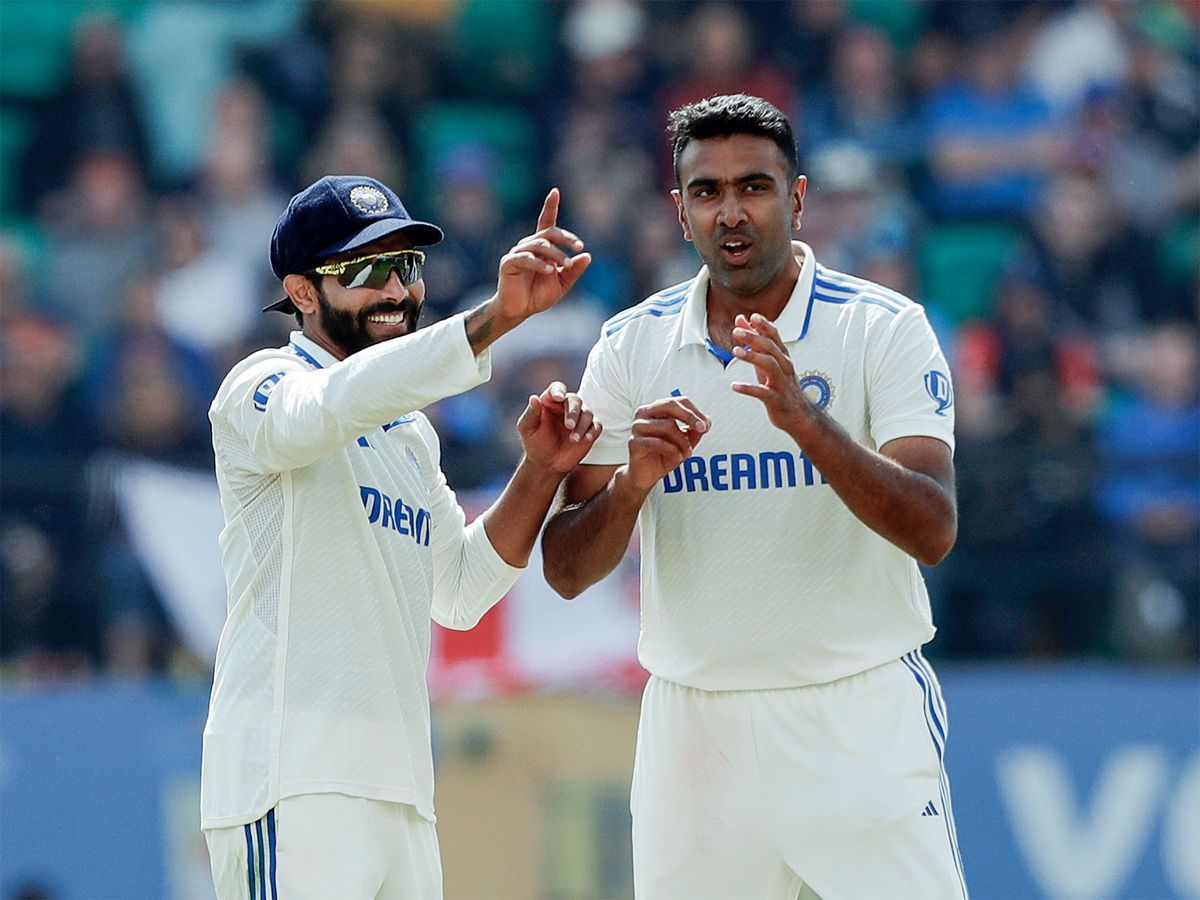"We miss him": Ravindra Jadeja's emotional tribute to R Ashwin after first home Test without his bowling partner

"We miss him": Ravindra Jadeja's heartfelt tribute to R Ashwin after first home Test without his partner
Ravindra Jadeja delivered a vintage all-round performance in India's innings-and-140-run demolition of West Indies in Ahmedabad, but amid the celebrations came a poignant moment. Asked about playing his first home Test without longtime spin partner R Ashwin, who retired in December 2024, Jadeja's smile couldn't hide the genuine emotion.
"Obviously, we miss him. Ash has contributed so much to Indian cricket for so many years. He has been a match-winner."
The partnership that built India's fortress
For over a decade, Ashwin and Jadeja formed the backbone of India's home dominance. Together in 58 Tests, they claimed 587 wickets—Ashwin taking 317 and Jadeja 270. Their contrasting styles created a nearly unbeatable combination: Ashwin the creative genius with variations and guile, Jadeja the metronomic control merchant with relentless accuracy.
India's 18-series home winning streak over 12 years was built on this foundation. Opponents knew they had to face both, often from both ends simultaneously, with no respite. The partnership ranked sixth on the all-time list of most successful bowling duos, averaging an incredible 10.12 wickets per match together.
The reality of Ashwin's absence
Playing at the Narendra Modi Stadium, Jadeja found himself repeatedly expecting his old partner to bowl from the other end, only to remember the reality.
"Playing a Test in India without Ash, somewhere it feels Ash would bowl now but then the realisation comes that he is not there."
The adjustment wasn't just tactical but emotional. Jadeja spoke about how Ashwin served as his "on-field mentor," constantly exchanging messages about match situations, batter tendencies, and bowling strategies. That real-time tactical partnership, built over hundreds of sessions together, cannot be easily replicated.
The new spin trio emerges
While missing Ashwin, Jadeja praised the emerging combination with Kuldeep Yadav and Washington Sundar, who both contributed in the West Indies rout.
"Kuldeep and Washy, they have played enough games so we cannot term them youngsters but it was a different combination. In future, you will say Jaddu is not there but then someone else would come along and that has to happen. This will go on."
This philosophical acceptance showed Jadeja's understanding of cricket's natural evolution. The Ahmedabad Test proved India's spin depth remains strong, with multiple quality options to choose from depending on conditions and opposition.
Jadeja's stellar performance
Despite the emotional adjustment, Jadeja's cricket spoke loudly:
Unbeaten 104 with the bat, his sixth Test century
4 for 54 in the second innings
Player of the Match honors
Extended his 2025 purple patch to 659 runs in seven Tests at 82.37
The century was part of remarkable consistency—seven scores above 50 in India's last six Tests, including six 50-plus scores during the England series earlier in the year where he amassed 516 runs.
Vice-captaincy and leadership
Named Test vice-captain for this series, Jadeja downplayed the formal title while acknowledging his senior role.
"The vice-captaincy tag looks good on paper, but as a senior player, if a young player comes and asks me or I go and tell him something, that matters a lot... We don't have a culture where a youngster would feel better if I go and tell him, rather than him coming to me. Everyone treats each other equally."
This egalitarian approach reflects modern India's dressing room culture, where respect is earned through performance and character rather than hierarchy.
The declaration strategy
Jadeja revealed that India's overnight declaration at 448/5 with a 286-run lead had been planned since stumps on Day 2.
"We were thinking about the declaration last night because we thought on this wicket, 280 plus runs would be good enough."
The decision proved spot-on as West Indies collapsed for 146 in their second innings, unable to cope with India's bowling attack on a wearing surface.
Batting transformation
Beyond the milestone numbers, Jadeja credited mental and technical changes for his batting evolution from useful tail-ender to genuine middle-order force.
"As far as my batting is concerned, I have worked on it mentally as well as skill-wise. I have changed my mindset a bit. I used to play with a different mindset in the past but I have made a few changes."
This transformation has made him one of the world's premier all-rounders, capable of changing matches with both bat and ball.
Fitness and longevity
At 36, Jadeja remains remarkably fit and athletic in the field. When asked about his fitness routine, he characteristically played it down.
"Luckily, God has been kind that I didn't have many injuries and I have worked on my fitness. I also don't post much on social media in terms of what all I do, but I do. All that is making a difference for me in the ground."
This quiet dedication to fitness work explains his sustained excellence and ability to bowl long spells without losing accuracy.
Looking ahead
Jadeja is tantalizingly close to joining cricket's most exclusive club—4,000 runs and 300 wickets in Tests. He needs just 10 runs to become the fourth member. Even more remarkably, the 5,000 runs and 400 wickets club (currently only Kapil Dev among Indians) could be within reach.
When this was mentioned, Jadeja joked: "You're putting pressure on me now. I'll have to start thinking about how to score 1,000 more runs and take 60-70 more wickets."
The Ashwin legacy
While India moves forward without Ashwin, his impact remains immeasurable. Together with Jadeja, he redefined what it meant to be a match-winning spinner in modern Test cricket. They elevated the art of bowling in tandem, setting fields for each other, creating pressure from both ends, and dominating home conditions like few pairs before them.
Jadeja's emotional acknowledgment of missing his partner humanized what statistics alone cannot capture—the bond forged through shared battles, mutual respect, and complementary brilliance that powered India's home dominance for over a decade.